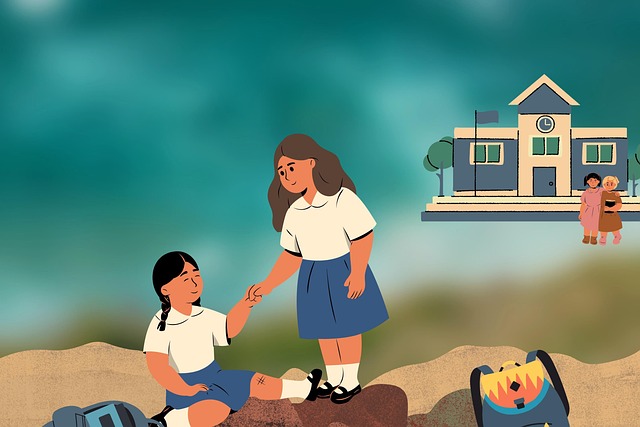Oregon's comprehensive Legal Aid System offers diverse support services, catering to low-income residents across various legal domains. Understanding eligibility criteria ensures individuals receive tailored assistance for family law, housing disputes, and consumer issues. Specialised programs focus on child support, providing free or low-cost legal aid to help parents navigate complex matters fairly. Nonprofit organisations, government agencies, and community clinics offer Oregon-specific legal guidance, while pro bono services and community legal clinics provide free help for many issues. Online platforms further enhance accessibility, offering digital tools and resources for residents seeking Oregon legal support, including child support guidance.
Looking for reliable legal support in Oregon? This comprehensive guide navigates the essentials of Oregon’s legal aid system, equipping residents with crucial knowledge. From understanding eligibility for free or low-cost services to tackling child support issues, we demystify accessing legal help. Discover Oregon-specific resources, explore pro bono offerings, and empower yourself with online tools. Whether you seek Oregon legal help or general support, this guide ensures you’re equipped with the right resources.
- Understanding Oregon's Legal Aid System: A Comprehensive Overview
- Identifying Eligibility Criteria for Legal Support Services in Oregon
- Navigating Child Support Issues: Essential Legal Resources
- Accessing Oregon-Specific Legal Help: Where to Find It
- Pro Bono Services and Community Legal Clinics: Boosting Legal Support Access
- Empowering Yourself: Online Tools and Resources for Oregon Residents
Understanding Oregon's Legal Aid System: A Comprehensive Overview

Oregon’s Legal Aid System is a crucial resource for individuals seeking legal assistance and support across various domains, including family law, housing, consumer rights, and more. This comprehensive system is designed to ensure equitable access to justice for all residents, regardless of their financial status. The state offers a range of services through both public and private organizations, making Oregon legal help readily available to those who need it most.
The Legal Aid Services Organization of Oregon plays a pivotal role in coordinating these efforts. They provide direct legal assistance, offer free or low-cost legal representation, and connect Oregonians with the right support legal aid for their specific needs. Whether it’s navigating complex child support issues or seeking help with housing disputes, understanding this system is paramount for anyone requiring Oregon support help. Accessing these legal resources can be life-changing, empowering individuals to advocate for themselves and secure a brighter future.
Identifying Eligibility Criteria for Legal Support Services in Oregon

Identifying eligibility criteria is a crucial step for individuals seeking legal support services in Oregon. The state offers a range of resources to assist residents with various legal matters, including family law, housing, and consumer issues. However, not everyone qualifies for every type of aid. Oregon’s legal help programs are designed to benefit low-income individuals, families facing domestic violence, and those dealing with specific legal challenges like child support or evictions. Understanding these eligibility guidelines is essential as it ensures that those in need receive the appropriate level of assistance.
The availability of legal support resources in Oregon depends on factors such as income levels, family size, and the nature of the legal issue at hand. For instance, child support legal resources are often accessible to parents who meet financial criteria, while Oregon support help for housing issues may be targeted towards individuals or families facing homelessness or a threat of eviction. Accessing these services requires a thorough review of one’s circumstances to determine if they align with the eligibility requirements set by the state’s legal aid organizations and government agencies.
Navigating Child Support Issues: Essential Legal Resources

Navigating child support issues can be complex and emotionally taxing, but understanding your rights and options is crucial for resolving these matters effectively. In Oregon, several legal resources support individuals facing child support challenges. The state offers various programs providing Oregon legal help, including free or low-cost legal aid to those who qualify. These services are designed to ensure that all parents have access to the legal support they need to reach a fair resolution.
Child support legal resources in Oregon encompass a range of organizations dedicated to helping families navigate these proceedings. From non-profit legal clinics to government agencies, these entities provide guidance, representation, and education tailored to Oregon’s support laws. Whether you require assistance with establishing paternity, modifying support orders, or enforcing payment, there are numerous Oregon support help options available to assist you in every step of the process.
Accessing Oregon-Specific Legal Help: Where to Find It

Accessing Oregon-Specific Legal Help: Where to Find It
When it comes to addressing Oregon support issues, whether related to family law, child support, or other legal concerns, individuals can tap into a wealth of Oregon legal help resources designed to provide assistance and guidance. Nonprofit organizations and government agencies play a pivotal role in offering support legal aid tailored to the state’s laws and regulations. These entities often have legal professionals on staff or collaborate with local lawyers who volunteer their time to assist those in need.
For those seeking Oregon legal support, starting points include state-run legal services organizations and county bar associations. Websites dedicated to providing information about child support legal resources and other related matters can also be invaluable. Additionally, community legal clinics and pro bono programs offer free or low-cost legal assistance, ensuring that Oregon residents have access to the legal help they need to navigate complex issues effectively.
Pro Bono Services and Community Legal Clinics: Boosting Legal Support Access

In Oregon, Pro Bono Services and Community Legal Clinics play a pivotal role in enhancing legal support accessibility for residents facing various issues. These initiatives offer free or low-cost legal assistance to those who cannot afford private legal representation, focusing on essential areas like family law, housing, consumer rights, and child support. By leveraging the expertise of volunteer attorneys and trained legal professionals, these services bridge the gap between legal resources and communities in need.
Community Legal Clinics are often set up in partnership with local organizations and universities, providing a convenient and accessible space for individuals to seek legal help. They cater to diverse populations, including low-income families, seniors, immigrants, and students, ensuring that Oregon support help is available to all who require it. Through these clinics, communities gain direct access to legal expertise, fostering a more equitable and just society where legal support is not limited by financial constraints.
Empowering Yourself: Online Tools and Resources for Oregon Residents

Empowering yourself with knowledge and tools is a crucial step when navigating Oregon’s legal system, especially for issues concerning support, be it child support or other forms. Online platforms have revolutionized access to legal support, making it easier for residents to find resources tailored to their needs. Websites like Legal Aid Services of Oregon provide comprehensive guides and information on various legal matters, ensuring Oregonians can make informed decisions.
These digital tools offer a range of services, from free online legal clinics where individuals can get initial consultations to databases containing essential forms and instructions for filing. With just a few clicks, residents can explore resources dedicated to explaining complex legal processes, ensuring they understand their rights and obligations in support-related cases.














